This Thai chicken and butternut squash massaman curry is spicy, sweet, sour, creamy and so delicious. It is everything you want a curry to be, and its complexity of flavours work. Massaman curry is one of my favourite Thai dishes and one that I made numerous times where people have been wowed by its flavours. This curry uses coconut milk yet it does not feel heavy. Swapping potatoes for butternut squash makes this massaman curry healthier and the perfect warming dish to have this autumn. Finish it off with some freshly chopped coriander and service with a bowl of steamed rice.
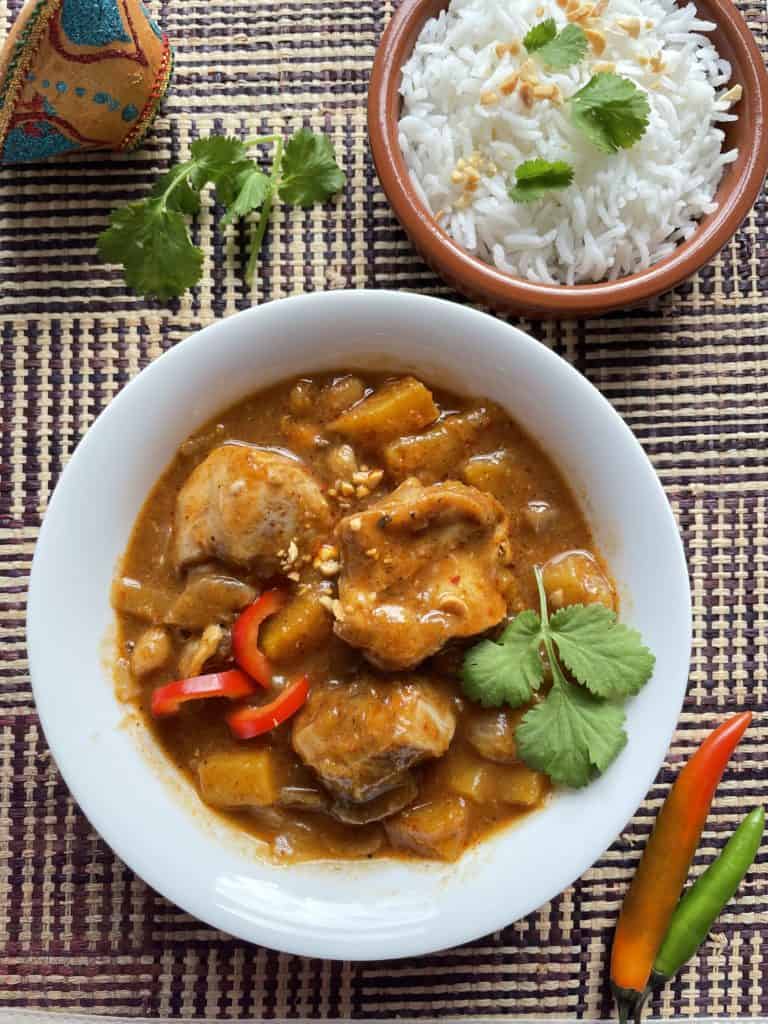
What is a Massaman curry?
Probably one of the most popular Thai curries, the massaman curry is a fusion of Thai flavours such as lemongrass, galangal and coconut milk, and Indian spices like cumin, cinnamon and cardamon. These ingredients along with others are ground together for form a curry paste which is then dry fried to release its flavours during cooking. I came across this popular curry while I was working in London. My office was literally next to a Thai restaurant and the smell of Thai food was omnipresent. One evening after work I decided to visit the restaurant and chose something other than the classic Thai red or green curry. That evening the massaman curry just ticked all the boxes and therefore came right on top of my favourite curry list! Now let’s make massaman curry!
The ingredients you will need for the massaman curry
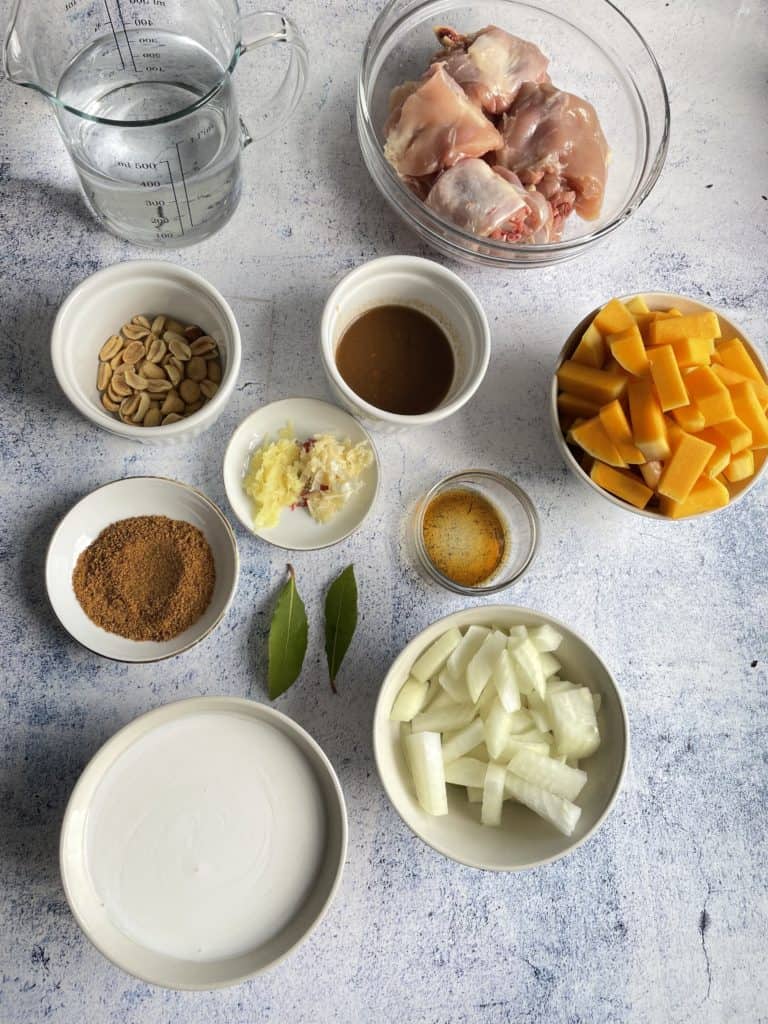
- Massaman curry paste – I buy the massaman curry paste from the Chinese store. I have always used the Mae Ploy brand as it has the right balance of ingredients.
- Coconut milk: Use tinned coconut milk. It brings richness to the curry sauce.
- Galangal/Ginger: Galangal is a stronger version of ginger and it has sharper notes. If you cannot find galangal add a little bit more ginger than you normally would.
- Chicken thighs: I prefer using chicken on the bone when making curries as it is more flavourful than chicken breast and it does not get dry when cooked.
- Butternut squash: This is my alternative to potatoes. It makes the curry lighter and healthier, and its sweetness and texture work a treat!
- Onions: Use white onions, that have a strong flavour.
- Roasted peanuts: Adding peanuts to the massaman curry brings an extra level of texture and nuttiness.
- Tamarind paste: Tamarind helps balance the sweet flavours of the curry. It brings a sour note to the curry.
- Bay leaves: Bay leaves add a herby aroma to the curry. Alternatively use curry leaves.
- Coconut/palm sugar: Traditionally palm sugar is used in massaman curries, however coconut sugar works as well.
- Fish sauce: Adds a umami punch to the dish.
- Coriander: Used as garnish and brings out the fragrance of the curry.
Let’s bring this dish together
Using chicken thighs for this curry just brings added flavour, If you do not like chicken on the bone use boneless thighs which are available in most supermarkets. Before starting the cooking marinate the chicken with chopped onions and garlic, salt and pepper. To bring added flavour to the dish dry roast the massaman curry paste in a pan for a few minutes before adding a little coconut milk to loosen it.
Now add the chicken and turn up the heat to sear it for a few minutes. Once browned pour the rest of the coconut milk and add some sweet and sour flavours of coconut sugar and tamarind. Bay leaves add a herby fragrance to the curry. You also want some crunch to your dish – roughly chop the roasted peanuts and add it in.
Don’t forget the butternut squash which adds sweetness to the massaman curry. Balance it with a little fish sauce and simmer everything together until the butternut squash is tender and your kitchen smells like Thailand. Chicken and butternut squash are easy ingredients that do not take long to cook. You can bring a piping hot Thai curry to the table in just under 45 minutes.
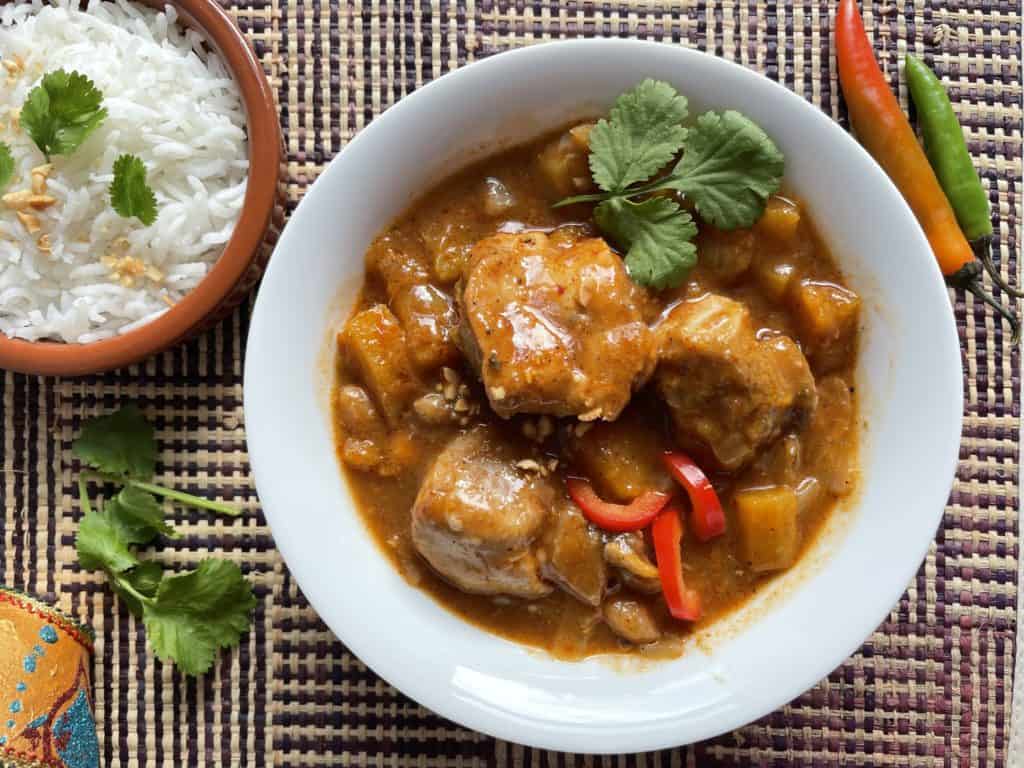
Now what should you serve a massaman curry with? I always opt for steamed rice, however you can eat it with flat bread, rice noodles or even a bowl of stir-fried vegetables. Sprinkle some roasted peanuts on top of the rice and some fresh coriander and finely sliced chillies on the massaman curry before serving. You will love this curry so much you, and I hope it makes for a perfect dinner time, whether it is with friends or family. Enjoy!
If you are looking for other curry recipes, try this delicious fish curry ready in just under 30 minutes.
It really makes my day to see photos of the Half a Coconut recipes you have tried, enjoyed and shared with me. If you make this massaman curry don’t forget to add a comment below and share a photo on Instagram, tagging me in.
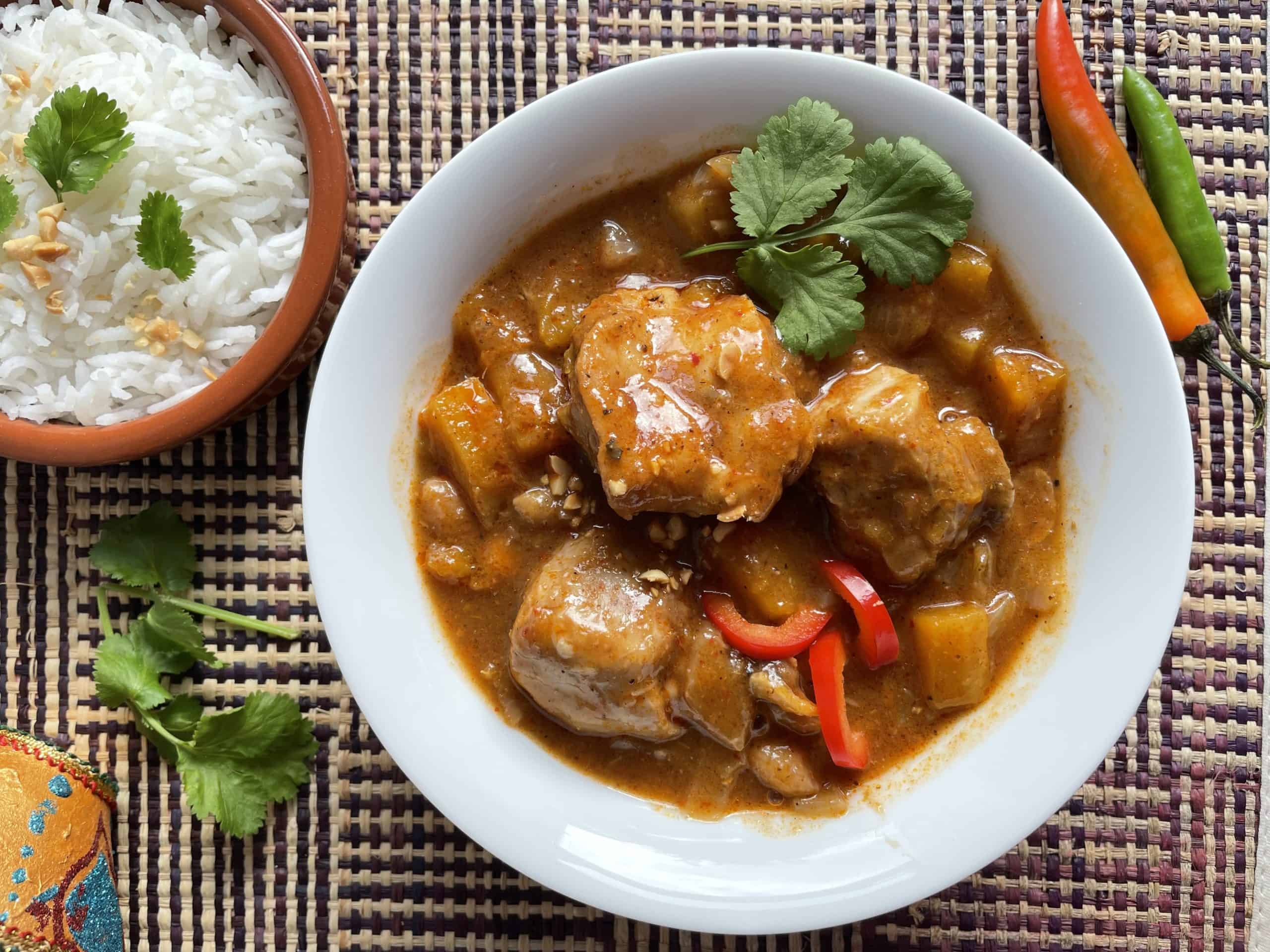
Massaman Chicken and Butternut squash Curry
This Thai Massaman chicken curry made using coconut milk is fragrant and probably one of the best Thai dishes that have ever been created. The complexity of flavours that go into this curry just works, with sweet, sour and slightly spicy notes.
Ingredients
- 750g Chicken on the bone
- 300g diced butternut squash
- 1 large onion, chopped
- 2 cloves garlic, minced
- 1 thumb ginger or galangal, minced
- 400ml coconut milk
- Handful roasted peanuts
- 400ml water
- 1 tbsp tamarind paste
- 2 bay leaves
- 1 tbsp coconut sugar
- 1 tbsp fish sauce
- Chopped coriander for garnish
Instructions
- To the chicken pieces add onions, garlic, ginger, and stir well.
- Dry fry the massaman curry paste for 2 minutes until it releases its flavour, then add 2 tbsp coconut milk. Cook away the milk, allowing the fat to cook the curry paste.
- Add the chicken pieces and brown all over for about 5 minutes. Add the rest of the coconut milk and stir well. Roughly chop the roasted peanuts and add to the pan with about 400ml of water.
- Stir in the tamarind paste and add the bay leaves and coconut sugar.
- Add the butternut squash and mix well. Add the fish sauce and turn down the heat before covering the pan and leaving to simmer for 30 minutes until the sauce has thickened and the butternut squash has softened.
- Sprinkle some chopped coriander on top and serve with steamed basmati rice.
Nutrition Information
Yield 4Amount Per Serving Calories 472

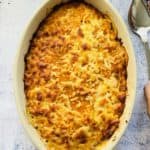

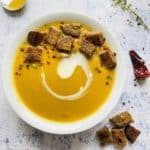

Leave a Reply